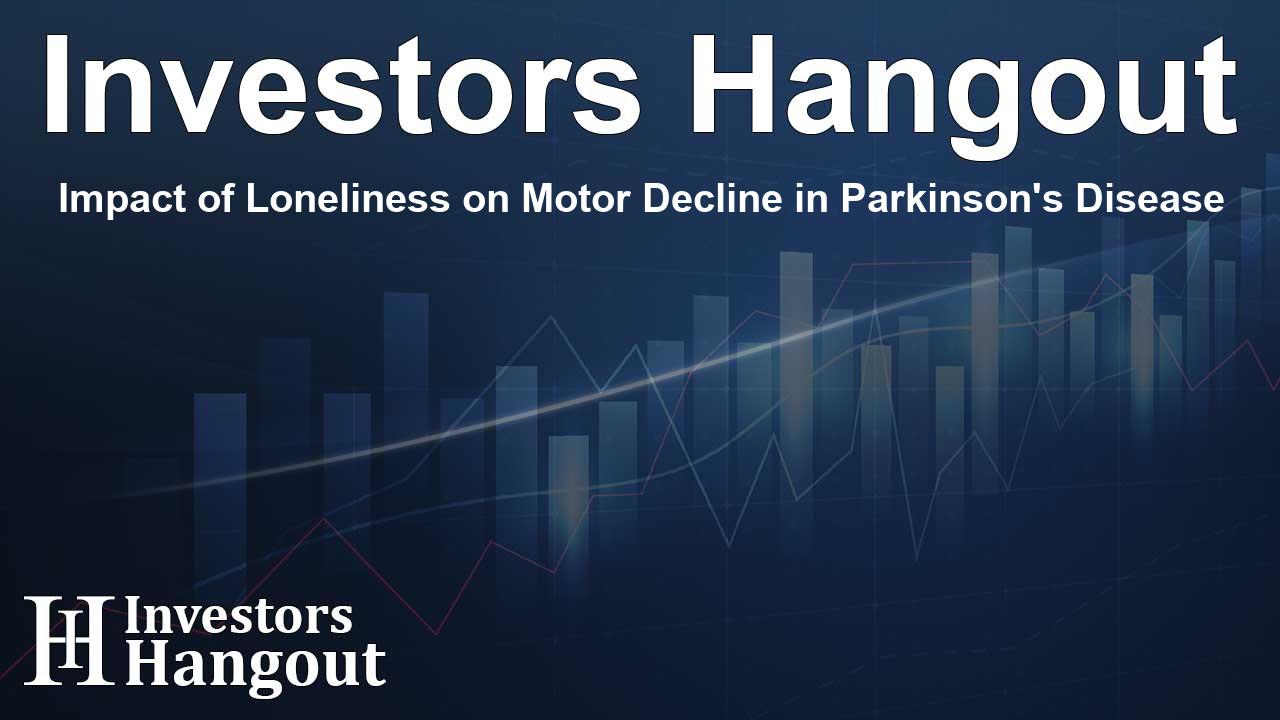Impact of Loneliness on Motor Decline in Parkinson's Disease

Exploring the Link Between Loneliness and Parkinson's Disease
Recent studies have uncovered a significant connection between loneliness and the progression of Parkinson's disease (PD). Individuals suffering from PD often find themselves more isolated, and this isolation can lead to worsening motor symptoms. Research indicates that loneliness can be a stronger predictor of physical decline than previously understood.
The Research Findings
At a significant conference focused on Parkinson's disease and movement disorders, researchers presented compelling findings demonstrating that loneliness not only correlates with motor decline but may expedite it. During the study, over 1,700 participants were assessed for levels of loneliness and their associated PD symptoms.
The Methodology
The researchers utilized established clinical rating scales to evaluate both loneliness and parkinsonism in a diverse group of participants. The study tracked these individuals over an average span of 5.3 years, revealing that loneliness emerged as a more prominent predictor in worsening symptoms.
The Loneliness and Parkinsonism Relationship
Dr. Indu Subramanian, a Clinical Professor of Neurology and an expert in the field, emphasized that loneliness is often overlooked in PD research. Despite being a modifiable factor, it plays a crucial role in the health outcomes of individuals with PD. Dr. Subramanian highlighted the importance of addressing loneliness, especially in the context of an aging population at risk for isolation after a Parkinson's diagnosis.
After the Pandemic: A Growing Concern
The COVID-19 pandemic has intensified feelings of loneliness among many, particularly older adults. Dr. Subramanian pointed out that the heightened isolation faced by patients after the pandemic underscores the urgency of screening for loneliness in those diagnosed with PD. Interventions targeting this issue could potentially make a significant difference in their quality of life.
The Importance of Addressing Loneliness
Given the understandable yet alarming correlation between loneliness and motor decline in individuals with PD, the need for proactive measures becomes clear. By implementing targeted strategies for intervention, healthcare providers can help combat the loneliness prevalent among patients. This could significantly improve not only their mental health but also the management of their motor symptoms.
Upcoming Congress
This research, among others, was highlighted at a recent congress dedicated to Parkinson's disease and movement disorders. The event aims to unite healthcare professionals from around the world, promoting education and collaboration on the latest findings and research in this field.
Conclusion
The growing understanding of the impact of loneliness on motor decline in Parkinson's disease underscores a crucial area for research and intervention. As healthcare professionals recognize the need for comprehensive screening and support for loneliness, patients will stand to benefit from improved management of their symptoms and overall health outcomes.
Frequently Asked Questions
What is the connection between loneliness and Parkinson's disease?
Loneliness has been identified as a significant factor that can worsen motor symptoms and accelerate physical decline in individuals with Parkinson's disease.
How does the COVID-19 pandemic relate to loneliness in patients with PD?
The pandemic has exacerbated feelings of isolation among many older adults, particularly those diagnosed with Parkinson's disease, highlighting the need for better support systems.
Why is loneliness considered a modifiable risk factor?
Loneliness can be addressed through community engagement, support networks, and targeted interventions, which can lead to improved health outcomes for patients.
What should healthcare providers do regarding loneliness in PD patients?
Healthcare providers should actively screen for loneliness in patients with Parkinson's disease and implement focused interventions to alleviate isolation.
Are there any upcoming events related to Parkinson's disease research?
Yes, significant conferences regularly convene to discuss advancements in research and treatment methods for Parkinson's disease and movement disorders.
About The Author
Contact Caleb Price privately here. Or send an email with ATTN: Caleb Price as the subject to contact@investorshangout.com.
About Investors Hangout
Investors Hangout is a leading online stock forum for financial discussion and learning, offering a wide range of free tools and resources. It draws in traders of all levels, who exchange market knowledge, investigate trading tactics, and keep an eye on industry developments in real time. Featuring financial articles, stock message boards, quotes, charts, company profiles, and live news updates. Through cooperative learning and a wealth of informational resources, it helps users from novices creating their first portfolios to experts honing their techniques. Join Investors Hangout today: https://investorshangout.com/
The content of this article is based on factual, publicly available information and does not represent legal, financial, or investment advice. Investors Hangout does not offer financial advice, and the author is not a licensed financial advisor. Consult a qualified advisor before making any financial or investment decisions based on this article. This article should not be considered advice to purchase, sell, or hold any securities or other investments. If any of the material provided here is inaccurate, please contact us for corrections.
